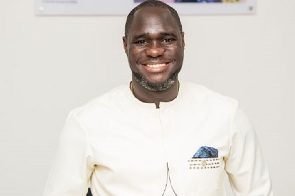The District Chief Executive for Ellembelle Kwasi Bonzoh is admonishing fishmongers in Ghana's coastal communities to desist from using mangroves to process fish.
"This way, not only will they save the environment, but will also help rebuilding the depleted fish stock confronting the fishing industry in the country".
Speaking at the commemoration of the 2019 World Environment Day observed by the Ghana National Gas Company at Atuabo in the Ellembelle District, Mr Bonzoh admonished citizens to give meaning to saving the environment when they recite the "when the last tree dies, the last man dies" cliche`.
He said, "mangroves as we have come to know them serve as a rich environment that support the spawning cycle of fish for our own consumption. But some of our fishmongers and other persons within the fish processing value chain have developed the habit of cutting down mangroves; the very environment we need to sustain our fish stock, for drying the already harvested fish. At a time we are all lamenting the dwindling fish stock phenomenon, why will anybody want to destroy the very "breeding" ground for fish, when we need them the most? The physically worried Bonzoh queried!
He continued that "it is our duty as people to protect the environment whilst we search for what we will eat. We have to give meaning to planting more trees, for it is us who all say the popular cliche of when the last tree dies, the last man dies".
The Ellembelle District in the Western Region is one area where mangroves are found to protect major rivers such as the Amanzule River.
They also serve as spawning grounds for fishes at where the river joins the sea. But some fishmongers, as has been observed, are cutting down the trees for processing fish.
Mr. Bonzoh admonished persons involved in the practice to desist from it to protect the environment for posterity.
General News of Thursday, 6 June 2019
Source: ourstorisonline.com

















